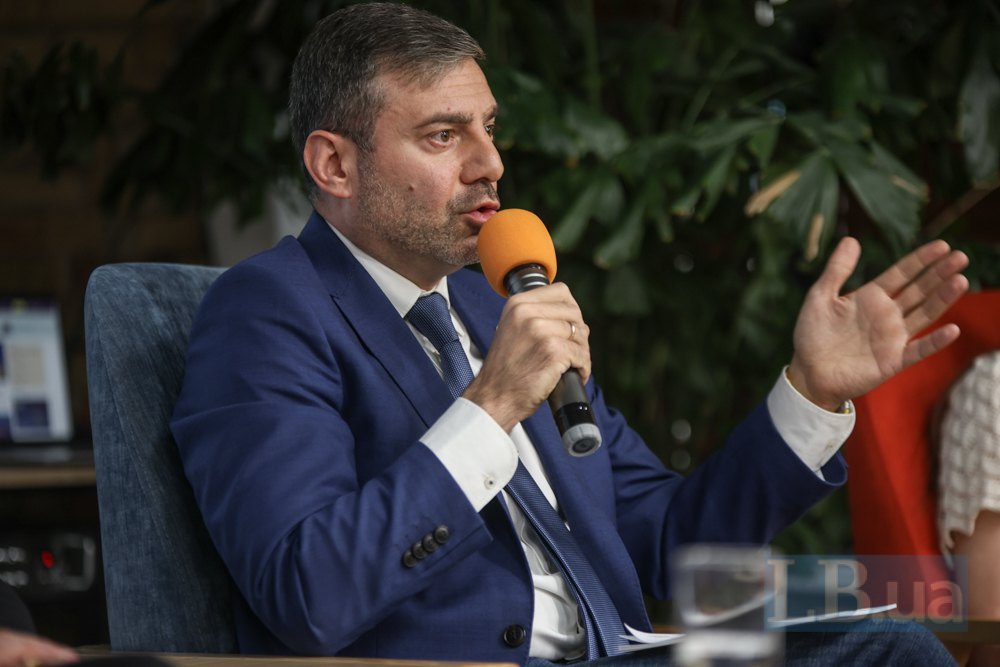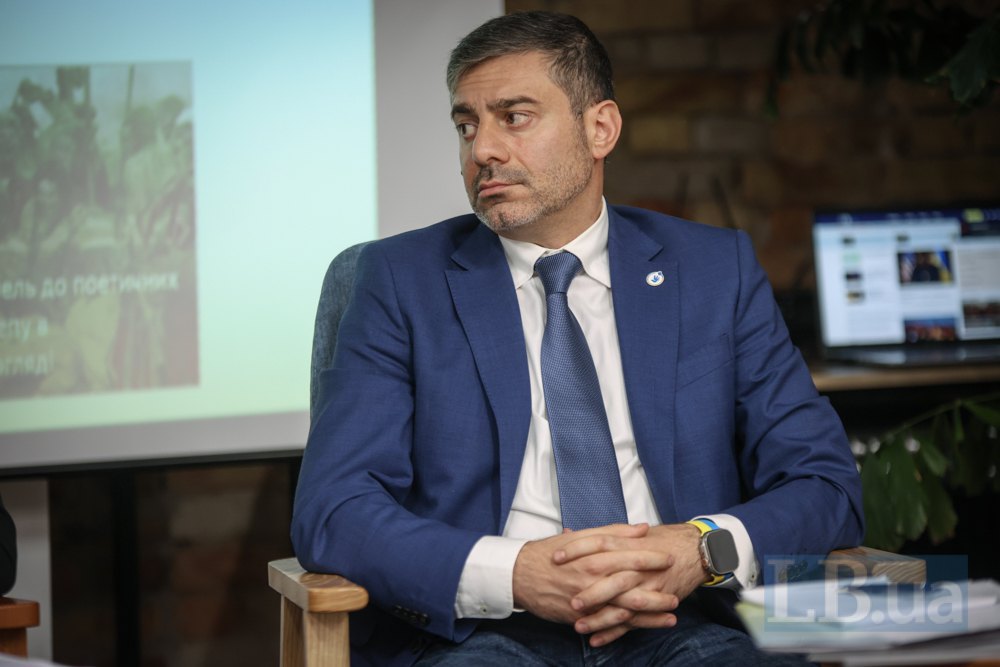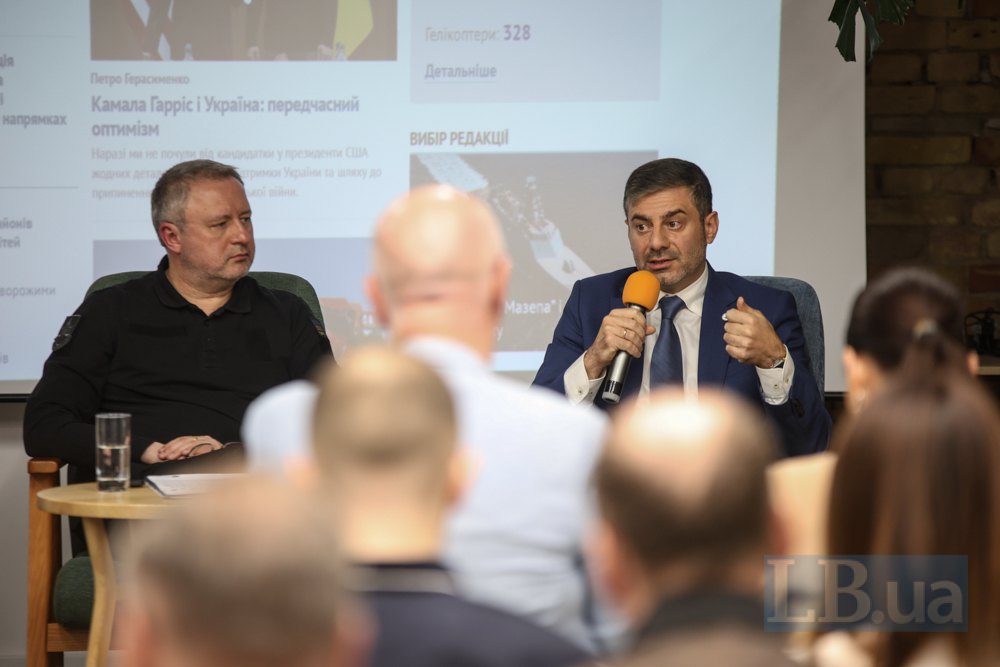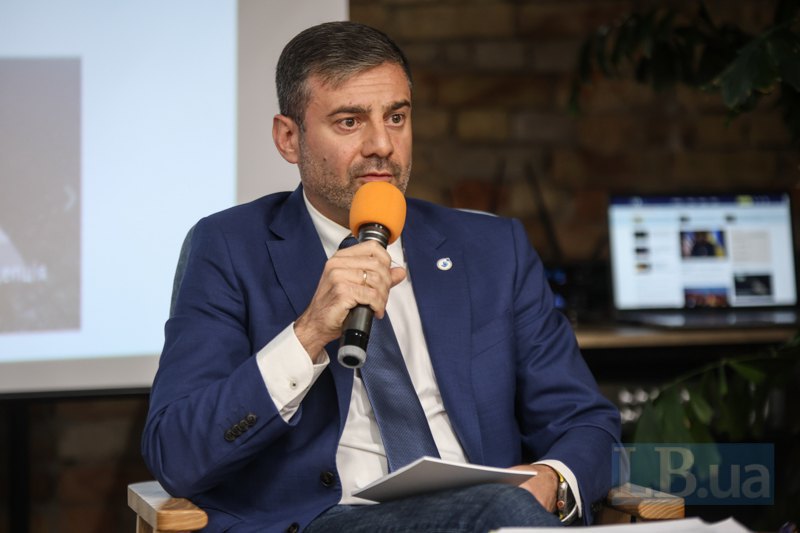
Illegal deportation of Ukrainian children. "We thank Prosecutor Khan for the fact that there are indeed two arrest warrants - for Putin and for Lvova-Belova - on the issue of the illegal deportation of Ukrainian children. But if we recall that the Russians started deporting Ukrainian children in 2014, not in 2022, we should ask ourselves: where was the international community before? When Russian citizens publicly came to the territory of the Autonomous Republic Crimea, chose, adopted, changed their passports, birth certificates, changed their data and took them to the territory of the Russian Federation. What was the reaction? None," the ombudsman said.
Since 2022, he stressed, the scale of deportations has increased.
"As of now, we have confirmed facts that almost 20,000 Ukrainian children have been either deported or forcibly displaced within the temporarily occupied territory. Very often, this is done against the will of their parents.
And what is the responsibility of the Russian Federation for this as of now? Two arrest warrants from the ICC. And then what? Nothing," Lubinets added.
Civilians. "Since 2014, the Russian Federation, and I won't even dwell on the norms of the Third Geneva Convention, has violated all the norms on the treatment of civilians in international armed conflict. This includes illegal detentions, torture, destruction of civilian infrastructure, and the total destruction of settlements. What is the responsibility? None at all. Again, the Russians have been doing this since 2014. We managed to return 161 civilians from Russian captivity. Almost all of them speak about the torture they experienced there," said the Ombudsman.
He recalled the meeting of the Prime Minister of Ireland with a family with three children who had been returned from the temporarily occupied territory: the woman spoke about the torture her husband had suffered.
"They came home without any explanation, arrested him, and kept him in the basement for a month. He came back with almost no teeth. He lost 10 kilograms in a month and looked 20 years older. This is just one example. Such cases are a system of torture, torture of civilians, which has been used by the Russian Federation since 2014. What is the responsibility for this? None," Dmytro Lubinets recounted the story.
Prisoners of war. "The Fourth Geneva Convention. We need to return 3,920 prisoners of war. The latest report, when not only we are shouting to the whole world about the violation of the rights of prisoners of war, but even the official report of the UN Permanent Monitoring Mission recorded after talking to the returned former prisoners of war that 95% were subjected to constant torture in Russian captivity, including sexual violence against both men and women. What is the responsibility?
We are shouting to the whole world that, according to the Geneva Convention, we must ensure the right to correspondence, the right to verify a prisoner of war, the right to receive medical care, adequate food and water. We even have prisoners of war who are officially seriously wounded, but no one returns them," the ombudsman stressed.

And the activities of the International Committee of the Red Cross - the only organisation that can and should be in places of detention, observe and monitor the protection of prisoners of war - are effectively blocked on the territory of the Russian Federation, he added.
"What responsibility for this has Russia incurred or could even potentially incur? None at all. And even worse: the ICRC representatives say that we cannot tell them that the Russians do not allow us to visit. We can't. Because we are a neutral international organisation.
We don't demand that you come out and say that Russia is the aggressor and Ukraine is the object of aggression. No, this is not your mandate. But you have to be objective and effective. If you come to the territory of Ukraine almost every week to specially created camps for Russian prisoners of war, even communicate with them in confidence, with the Russians, and then, for every violation of their alleged rights, you first come to my office, demand a reaction from both me and the Prosecutor General of Ukraine - and there is always such a reaction - then where is your reaction to the violation of the total rights of our citizens?" Dmytro Lubinets appealed.
Outdated UN Charter. "It is not just outdated, it is ineffective. It was written for specific historical times that are long gone. Unfortunately, most countries do not want to understand this. They live in their own realities, and they have brought us back to the Middle Ages, where the rule of law is not the rule of law, but the rule of force. Whoever is stronger is right. Unfortunately," said the Ombudsman.

What to do about it
The Ombudsman calls President Volodymyr Zelenskyy's peace formula our response to the crisis of international organisations.
"Point four is the return of all illegally detained and deported Ukrainian citizens from the territory of the Russian Federation. Recently, there was a closed meeting in Switzerland, which I attended. There, countries proposed new approaches to return Ukrainian children, civilians and prisoners of war of the Armed Forces of Ukraine.
And I kept asking them a question: maybe we should remember that we have a system in place that consists of international humanitarian law, the Geneva Convention, and the UN Charter? The system exists on paper. So why is it not working? Perhaps we need to think deeper, because at the moment we have not just an international military conflict. We have a conflict between two groups of countries that differ in the type of governance. On the one hand, the countries that are committing aggression are autocratic, dictatorial countries. On the other hand, there are democratic countries. We are actually in a state of the Third World War, because there are groups of countries that are fighting each other, unfortunately for us, on the territory of Ukraine," Lubinets said.
With his visit to Mongolia, he believes, Putin has once again demonstrated that the system is not working. And in an attempt to bring Ukraine and Russia to the negotiating table, it is possible that the Russian dictator will appear in Brazil at the G20 summit, the ombudsman suggested.
"Another argument why I say so directly, publicly today, that the international human rights system does not exist: big players, when they weigh up the protection of human rights and financial gain from trade with Russians, choose money and finance. Can we offer something? Yes, we can," he added.
In addition to the peace initiative, Ukraine proposes to impose effective sanctions.
"With all due respect to our partners, Iran has been under sanctions for over 30 years. Iran sells Russians its weapons, which Russians use to kill Ukrainians in Ukraine every day. And this will never end unless sanctions are really effective, able to completely stop economic activity with a particular country in a short time," Lubinets said.

The next step is the total exclusion of Russians from all international organisations.
"We are doing this. Russians have been excluded from the world's largest ombudsman organisations. There are two organisations left. One, I know it will be next month. I'm going there, I'm going to speak, and there will be a decision. As for the last one, the fourth, I hope we will vote early next year.
The first organisation to be expelled on 5 August 2022 was the IOI, the International Ombudsman Institute, the largest (218 members). The second organisation is ENNHRI, the European Network of National Human Rights Institutions, on 11 April 2023. Next month, AOM, the Ombudsmen of the Mediterranean, will vote. And the last organisation, the Global Alliance of National Human Rights Institutions, will vote at the general assembly in February 2025," the Ukrainian Parliament Commissioner for Human Rights elaborated.
He also stressed that it is necessary to introduce a section of responsibility in the system of international law - "a clear transparent toolkit on what countries that have independently committed themselves to implementing international humanitarian law will do in relation to a country that violates such international humanitarian law.”








